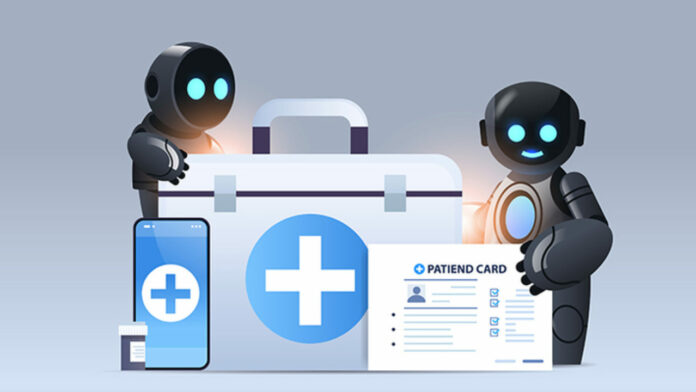According to a recent report published by MarketsandMarkets, the global healthcare chatbots market is expected to grow from $314.3 million by 2023, at a compound annual growth rate (CAGR) of 20.8%. This growth in the use of healthcare chatbots is proof that chatbots are very useful for patients as well as healthcare providers.
Intelligent healthcare chatbots are being used in many different ways to increase healthcare accessibility, improve patient experience, and reduce the workload of healthcare providers. Keep reading this post, by the end of this post you will know how chatbots have created their impact in the healthcare industry.
Introduction to Intelligent Healthcare Chatbots
Intelligent healthcare chatbots are based on computer programs that use artificial intelligence (AI) and natural language processing (NLP) to interact with patients and healthcare providers like other human beings. These chatbots can provide personalized medical advice, assist with appointment scheduling, offer symptom assessment and diagnosis, and provide medication reminders, among other things.
Improving Patient Experience with Chatbots
One of the key benefits of intelligent healthcare chatbots is the ability to improve the patient experience. Chatbots can provide 24/7 support to patients, helping them with their queries and concerns. Patients also use chatbots to schedule appointments, receive reminders for their medication, and get personalized advice on their health. By automating routine tasks, chatbots free up healthcare providers’ time to focus on providing more complex and personalized care to their patients.
Enhancing Healthcare Accessibility and Affordability
Intelligent healthcare chatbots are also helping to make healthcare more accessible and affordable. Chatbots provide medical advice to patients who does not have easy access to healthcare providers, such as those living in remote areas or villages. By using healthcare chatbots a patient can save a lot of money compared to other traditional treatments.
Providing Virtual Medical Consultations and Diagnosis
Another important use case for intelligent healthcare chatbots is virtual medical consultations and diagnosis. Chatbots can provide basic diagnosis and treatment advice to patients with minor health issues, allowing them to receive medical care without leaving their homes. They can also help healthcare providers by gathering patient data, providing medical insights, and flagging potential health issues.
Reducing Healthcare Provider Workload and Improving Efficiency
Intelligent healthcare chatbots are also being used to reduce the workload of healthcare providers and improve their efficiency. Chatbots can handle routine administrative tasks, such as appointment scheduling and medical record keeping, allowing healthcare providers to focus on providing more complex and personalized care. By streamlining processes and automating tasks, chatbots can also help healthcare providers reduce errors and improve the quality of care they provide.
Ensuring Data Privacy and Security in Healthcare Chatbots
One of the biggest concerns with intelligent healthcare chatbots is data privacy and security. Chatbots that handle healthcare problems of its patients keep their personal information very safe. To protect the personal data of patients, healthcare chatbots use secure communication protocols and encryptions which is another reason for their success.
Future Outlook for Intelligent Healthcare Chatbots
The future of intelligent healthcare chatbots looks bright. As we all know that technology is growing, chatbots will become even more sophisticated, providing better patient care and support to healthcare providers. After knowing all the blessings of healthcare chatbots all healthcare organizations adopt this technology to improve their services and enhance patient experience.
Conclusion
Intelligent healthcare chatbots are transforming the healthcare industry by providing personalized care and support to patients, improving healthcare accessibility and affordability, reducing the workload of healthcare providers, and streamlining processes to improve efficiency. While there are concerns around data privacy and security, these can be addressed through proper implementation and compliance with regulations.

